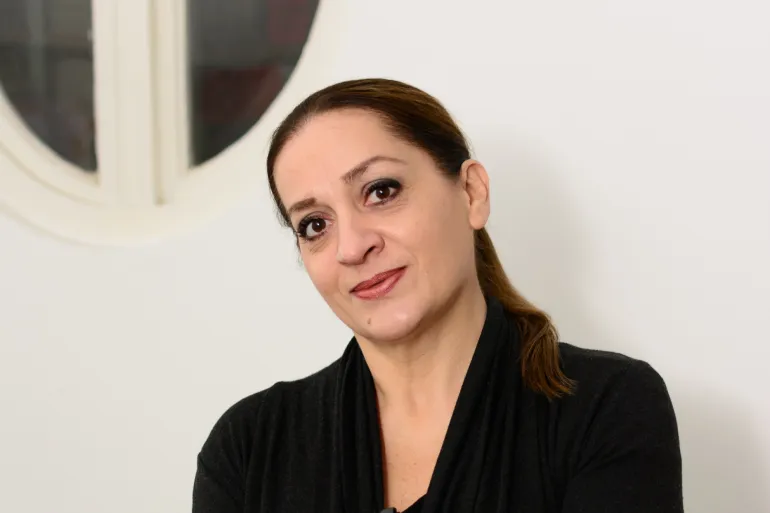Written by: Aleksandra Bosnić Đurić
Even if, by July 2026, we awaken in a free country, at last freed from assimilationist ambitions toward the political systems of neighboring states like Montenegro and Bosnia and Herzegovina, the memory of the repression that marked the final phase of Serbia’s last autocratic regime will remain a lasting moral obligation, shaping every future choice we make as citizens.
Because if we remain ensnared by authoritarian values and untransformed belief systems, it is almost certain that we, along with the region, will face new crises, new failures, renewed latent or open conflicts, and new defeats.
What most people in Serbia yearn for in July 2025 is something simple: freedom. In that space, there must no longer be room for myth-making, or populist and ideological manipulation of any kind, for that prolonged state of collective infantilism in which citizens willingly abdicate responsibility and place it into the “safe” hands of yet another leader. It is precisely the memory of lived repression and acts of resistance that compels us to break, finally and irrevocably, with authoritarian practice.
That is why the message to younger generations, those who will carry the historical responsibility of repairing the political and moral wreckage we’ve inherited, can be expressed quite simply: break free from the authoritarian mindset, and learn to recognize, early on, the demagogues who offer you new, and often dangerously seductive, forms of obedience. Because where obedience prevails, free and dignified citizenship cannot.
These fundamentally dishonest offers will once again come from the usual places: from demagogues and manipulators in the spheres of education and culture, figures who, until authoritarianism fully takes hold, appear innocent, seemingly removed from political responsibility. Just like before.
Martin Heidegger may have been a great philosopher, but he was not a good man. In his speech to German students in November 1933, he proclaimed:
“The National Socialist revolution brings with it the total transformation of our German existence. In these events, it falls to you to always move forward and be ever ready, never to retreat and always to grow... You are called to understand and act together in shaping the future university of the German spirit... Let your loyalty and will be strengthened with each day and hour. Let your courage grow without end, so you may be able to make the sacrifice to save the essence of our Volk and elevate its deepest power within the State. Heil Hitler!”
And as Jeff Collins, art history lecturer at the University of Plymouth, points out, there was much more in the same tone: loyalty, sacrifice, duty, resolve, all in service of National Socialism and the Führer.
Submission to the unquestioned authority of a leader, whether a statesman or politician, is inherently incompatible with critical thinking. As sociologist Zagorka Golubović notes, this submission forms “the conceptual foundation of an authoritarian society.” In such a system, the ideal identity is that of a depersonalized subject: a pseudo-individual, a pseudo-participant in social life, opposed to the self-aware, engaged, and creative citizen.
The structure of authoritarian rule, rooted in populism and nationalism, thrives on mass manipulation by charismatic leaders who present narrow group interests (often ethnic or ethnically framed national ones) as if they were universal societal goals. These are closed societies, characterized by intolerance of diversity and “foreign” cultures, and by the constant use of manipulative tactics. Even when differences are formally acknowledged, in practice, such societies overwhelmingly privilege the dominant majority’s viewpoint.
Whether we’re speaking of totalitarianism, which seeks absolute control over every aspect of life, or authoritarianism, which exerts more limited control, both systems work to suppress, silence, and dismantle any civic action that challenges the status quo. They marginalize dissenters or drive them into the private sphere, the last remaining space for autonomous existence. In turn, these regimes produce authoritarian personality types and rely on them to persist.
Erich Fromm defines the “authoritarian social character” as a collectively shaped personality that facilitates the smooth functioning of a given system. Building on this, Golubović introduces the concept of an “authoritarian mentality,” which reflects the collective psychology of a society under authoritarian rule, expressed as a syndrome of obedience to authority as the final arbiter of thought and behavior.
This willingness to obey, whether born of fear, coercion, insecurity, or manipulation, leads to the erosion of individual freedom, exchanged for the supposed “protection” offered by the state or another form of authority. It is a surrender to a collective that thinks uniformly, acts predictably, and conforms to a barrage of manipulative messages designed to transform a civic public into a crowd of obedient followers.
In contrast, a civic society is defined by its independence from state control over the public sphere. It is sustained by free, autonomous individuals; by the emergence of a modern civic identity; and by the rule of law applied equally to all. It is grounded in the recognition of human rights as foundational values and in their real-world implementation.
A civic society fosters democratic culture, supports both individual and collective initiatives aimed at democratic progress, and encourages independent thought and freedom of choice. It takes a critical stance toward power, resists abuses of authority, and cultivates values such as tolerance, mutual respect, and dialogue across differences.
In short, civic society is built on the refusal to submit.








Komentari (0)
POŠALJI KOMENTAR